|
-Meredith Manley Teaching in a big city like Dallas has its pros and cons: on the plus side, we have more potential students, more connections, and more resources. But with a larger population, that also means we have more competition. There seems to be a teacher with space in their studio around every corner. In a competitive city, it is important for us to make sure that our studio stands out amongst the rest. One thing that differentiates us from other studios is our reward system. We’ve written about music bucks before, but I can’t say it enough- they REALLY work in helping students progress and reach their yearly goals. Students can earn Music Bucks for practicing, memorizing pieces, participating in classes outside of their lessons, or doing extra theory work. At the end of the month, they can spend (or save) their bucks to buy prizes. I’ve seen a lot of studios do prizes every 3 or 4 months or once a year, but in my experience the more often they receive rewards, the better! Another unique feature of our studio is that our early childhood curriculum was created by us based on our teaching experience and expertise. We’ve taken the favorite songs and activities from over the years and put them into a successful program. Ms. Stathia has been teaching these classes for over 15 years, and Ms. Meredith has been teaching Music Together for over 10 years, so we really know what works. Our preschoolers learn about different instruments, cultural music, and learn to identify notes and rhythm patterns. It’s a great program that is not only educational, but helps prepare them for private lessons later. Ms. Stathia and Ms. Meredith are also both board members of the Dallas Music Teachers Association. We feel it’s important to be active in this organization, and we make it a priority for our students to participate in DMTA events. We also encourage our students to take the state theory exam each year. Being involved in DMTA helps us stay connected in the teaching community, and elevates our expectations for our students. And last but certainly not least, our strong relationships with our students set us apart. We really feel that building trust and a friendship with our students is what really helps them blossom, and they want to make us proud. If there is no attachment, students typically don’t care about how well they do and tend to quit. We strongly believe in the teacher/student relationship and taking time to place each student with a teacher. Our students are very special to us and it’s this bond that we cherish the most. Not that other studios don’t feature these things, but it’s hard to find a studio that has ALL of these. If you are searching for a studio, please be sure to think about other things besides proximity and price- it is the quality of the teacher that it most important.
0 Comments
-Stathia Orwig Recitals are a very special event for students and parents; it is a time when we come together to celebrate the accomplishments of the student! Here are a few things to keep in mind for a recital:
FOR PERFORMERS: • Performers should wear appropriate attire. Girls in appropriate-length dresses or nice pants, and boys in dress pants and polo or button down dress shirt. Please no flip-flops or athletic footwear. Please do not wear dangling, jingling jewelry. • It’s a great idea to practice in your outfit, especially with shoes included. • Once it is your turn, rise quickly and walk up to the piano. Adjust the bench, pause and collect your thoughts, and begin when you are ready. • Performers bow at the end of the performance. We will practice bowing properly a few lessons before the recital. • Arrive at the requested time in order to learn where you are to sit and receive instructions for the performance. AUDIENCE • Please arrive a little early (about 15 minutes prior to recital start time) in order to find a seat and help your child find their place. • Turn off all cell phones and any electrical devices that may produce sound. • Once the recital begins, please listen and be quiet. Crying babies should be taken out. They are not happy, and neither is the audience or the performer! • The soloist will bow and your response is to applaud politely! • Please stay until the performance or event is completely over. If you have other obligations or matters to attend to before the recital is over, please do not attend. -Meredith Manley A couple of weeks ago I posted an article by Ruth Gerson from the Huffington Post on our Facebook page titled, “Is It Safe for Children to Take Singing Lessons?” Some teachers believe in starting young, while others think waiting until the early teens is best, with the reasons being that a child’s vocal chords are very delicate and are therefore prone to damage easily, and the child’s voice is going to change during puberty so you will have to relearn technique again. While both of these are true, I still think it is a good idea for children to take voice lessons starting around age 7 or 8. One of the main reasons to start early is because it takes a while to learn how to breathe properly. As vocalists, we are trained to breathe from the diaphragm, which is a muscle that helps the lungs fill and empty. Without the proper amount of air, the sound is weak and often out of tune, so learning to breathe correctly is absolutely essential. Now you may be asking, why does it take so long to learn how to breathe properly? Diaphragmatic breathing feels the opposite of how we normally breathe- it’s very low in the body, with the belly sticking out as we inhale and contracting on the exhale. Once you’ve learned to engage the muscle, you now have to apply it every time you breathe- it’s a conscious effort to do this when you are thinking about so many other things musically. Another reason for students to start early is for ear training. A good ear is important because you have to know what different intervals sound like (the distance between two notes) when sightreading or working on a new piece. At first, we use the piano to learn pieces, but ideally, we would want to be able to learn them without the help of another instrument. Ear training also develops intonation, or the ability to sing in tune. It takes years to develop this skill as well, so why not start early?
Because a child’s vocal chords are more delicate, it’s better to take lessons with a trained professional who knows the limits and can help prevent damage. In today’s society, being able to sing loudly equates to being a good singer, as seen on many shows like American Idol and the X Factor. This teaches children that they have to push their voice in order to be good, when in fact, this is very dangerous and will likely cause damage. As far as I’m concerned, kids are going to imitate this style of singing at home or in the car, so if they have a genuine interest in singing and performing, consult with a voice teacher so that they do not injure themselves. And lastly, we have to develop performance skills. I always tell my students that part of being a singer means also being an actor. For some children, this comes very naturally, but for others, the idea of singing and portraying a character on stage is daunting. So, it takes time to learn how to perform, build confidence, and be comfortable on stage. Not all voice teachers will agree with this way of thinking, but I stand by it. Yes, we will have to relearn some technique after their voices have changed, but we will have already developed the basics that take years! -Stathia Orwig Every week, each teacher at Music SO Simple is able to pick one student who really “shined” that week. This is a tradition that I absolutely love and that I wanted to continue in my own business. You see, we can pick a student for any reason! It could be that the student showed up with their books for the first time in a while, or that they practiced more than usual. It could be that they blew their teacher away by memorizing a random piece, or that they learned one on their own. Maybe even that they had an attitude that was better than their “usual” attitude. The reasons are endless! The student(s) that are picked receive a certificate, 10 music bucks, and a “Student of the Week” yard sign for the week. Some people might think that recognizing a student every single week could get redundant. That’s a lot of music bucks and certificates given out! But you have to remember that we have 20-30 private students each. Theoretically, that would give each student a chance to be student of the week at least once during the school year. Now, do we give it to everyone? The answer is no, but we try really hard to find a reason to give them some recognition. I’ve seen some students in such a slump, with not a whole lot of practicing and on the verge of quitting. A little positive (public) encouragement gives a little lift. They are basically getting a high five that everyone around can see that just gives them the boost that they need. Even for the students who are used to doing well every week need a little recognition. My students always ask me why I picked them. And I’m honest! Even today, my student said, “Ms. Stathia, why did you pick me out of all the students you teach?” I told her that I saw so much improvement in her and that she totally surprised me by learning her holiday piece all by herself in just a week! She normally practices just a couple times a week, but when I had given her that piece, she practiced it almost everyday! These kids have so much going on with school, lessons, and other activities- they stay busy! My own kids are included in this!! We are busy parents too and not always giving our kids the attention and time that they need. When my daughter got Student of the Week a couple of weeks ago, her dad took her out to get a special stuffed animal- as a way of saying great job! She knew we were proud of her, and then proceeded to keep practicing every day without us asking her to! We need to make our kids feel special and recognize their progress, and at the same time encourage them to keep working hard.
|
Archives
July 2024
Categories
All
|
|
|
MUSIC SO SIMPLE
|
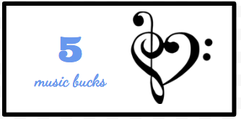
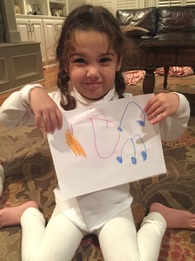
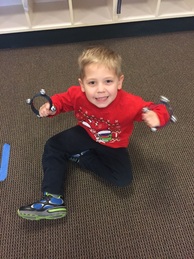
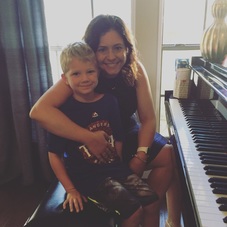
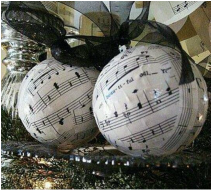

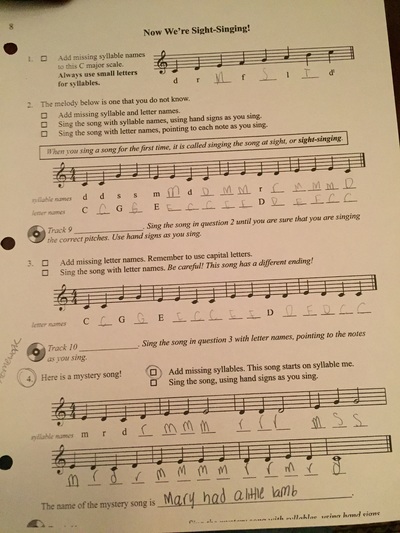
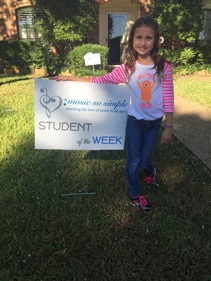
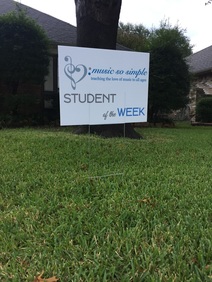
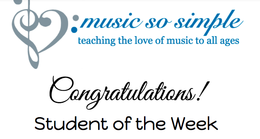
 RSS Feed
RSS Feed